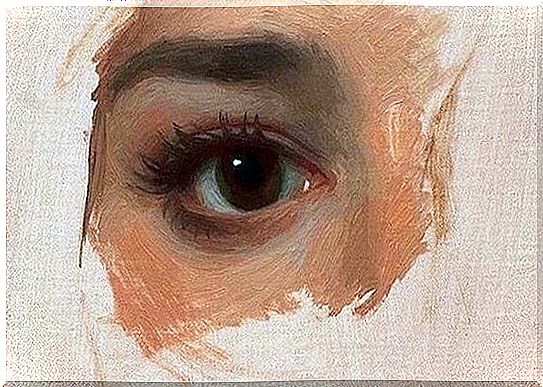Floating Anxiety: The Void Where All My Fears And Uncertainties Live

I’m not afraid of anything in particular but in reality… everything scares me. Because floating anxiety is like that, it is the uncertainty that lurks and traps me, that takes my breath away and the desire to leave home. It is like living in a room without windows and in solitude, it is living in a perpetual way in the shell of my worries, in the suffocating ball of my despair without solution …
Virginia Woolf used to say in her diaries that life is a dream, but it is our own awakening that kills us. It is as if somehow, there comes a specific moment in our existence when it is our turn to “wake up”, open our eyes to responsibilities, burdens, the unstoppable movement of our cities, that instantly out-of-tune sound of human relationships … Thus, almost without realizing it,
Waking up to life and discovering that sometimes it hurts and is difficult is something that thousands and thousands of people experience, there is no doubt. However, there is something much more complex that thousands and thousands of men and women live day by day. It is a diffuse and formless fear of being trapped in a behavioral pattern of excessive and recurring worry about almost anything, any event.
Likewise, this emotional scenario where only chronic uncertainty and constant stress grow, gives rise to a clinical manifestation known as “free floating anxiety” and which, in turn, is part of Generalized Anxiety Disorder (GAD). It should also be said that we are facing a reality as exhausting as it is complex, since unlike other disorders, concern and reactions do not focus on a series of specific aspects, but rather encompass everything.
The Generalized Anxiety Disorder could be summed up in a phrase as simple as it is forceful: “I’m always thinking that something bad is going to happen.”

Floating anxiety: irrational fear, non-adaptive fear
Adrián is 35 years old and, after 10 years of relationship with a girl, he has just been abandoned. She has fallen in love with another person and although our protagonist, apparently, seems to be fine, his closest environment is perceiving certain very striking aspects. Although it is true that Adrián has always been somewhat anxious, after the breakup he has become excessively obsessed with several things, one of them is the health of his parents: they fear that they will fall ill and die.
In addition, in their work they are also noticing some details. Adrián is an architect, and for some time now he has begun to obsess over the idea of making a mistake. You are overly concerned about not doing your job well and that something bad will happen under your responsibility. He also fears that he will not be able to pay his mortgage, hence, he is already anticipating what exits he should consider in case something like this happens. However, none of this has happened yet.
If we have given the example of this imaginary man, it is for a very specific reason. It is estimated that Generalized Anxiety Disorder, and in essence, this floating fear that permeates almost every aspect of these patients’ lives, affects women to a greater degree. However, the data also tells us something very relevant: almost 60% of those affected do not receive treatment or do not dare to take the step in search of help, a good part of them being men.

How to treat Generalized Anxiety Disorder?
As is always the case with treating anxiety , two approaches are necessary when dealing with this clinical condition. Medication, for its part, reduces symptoms and, in turn, provides the necessary conditions for psychotherapy to be much more effective.
Drugs based on selective serotonin reuptake inhibition are generally used. However, and in many cases, the administration of some antidepressants is also necessary – we always remember that each patient is unique and their personal reality will require exclusive treatment.

On the other hand, cognitive-behavioral therapy and all those therapies focused on stress management are very effective in reducing those excessive worries caused by floating anxiety. With them we learn effective coping strategies and develop healthier and more integrative behaviors.
To conclude, it should also be noted that it never hurts to attend to other aspects of our life: eating and practicing some kind of sport or some meditation technique are also complementary tools with which to overcome fear, with which to focus attention a little better. to what is important, to what is essential and thus learn to think correctly to live better.
Images courtesy of Agnes Cecile









